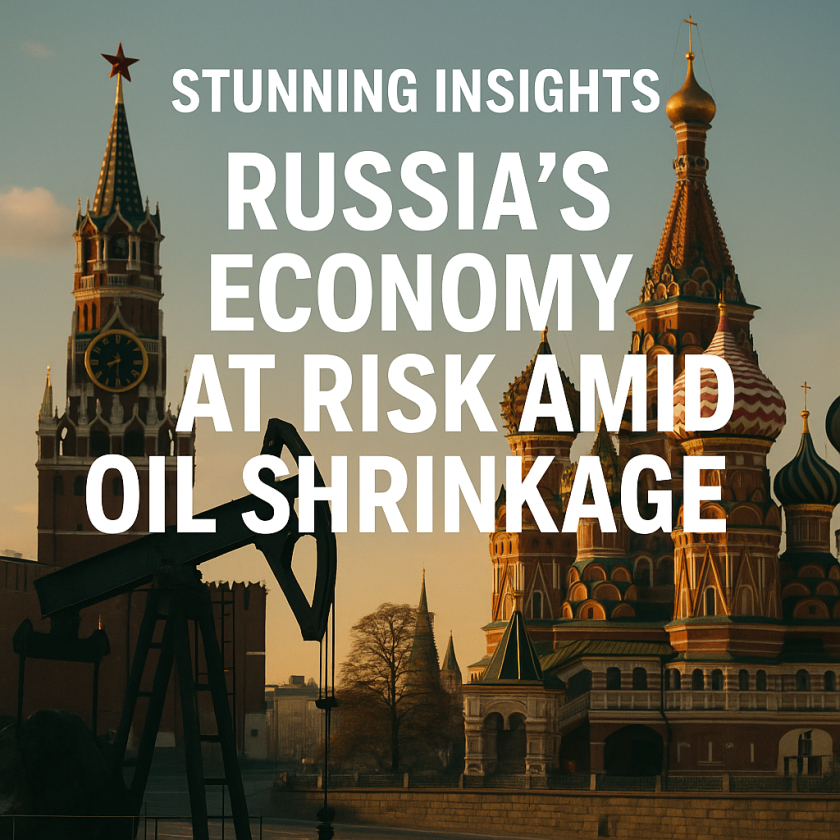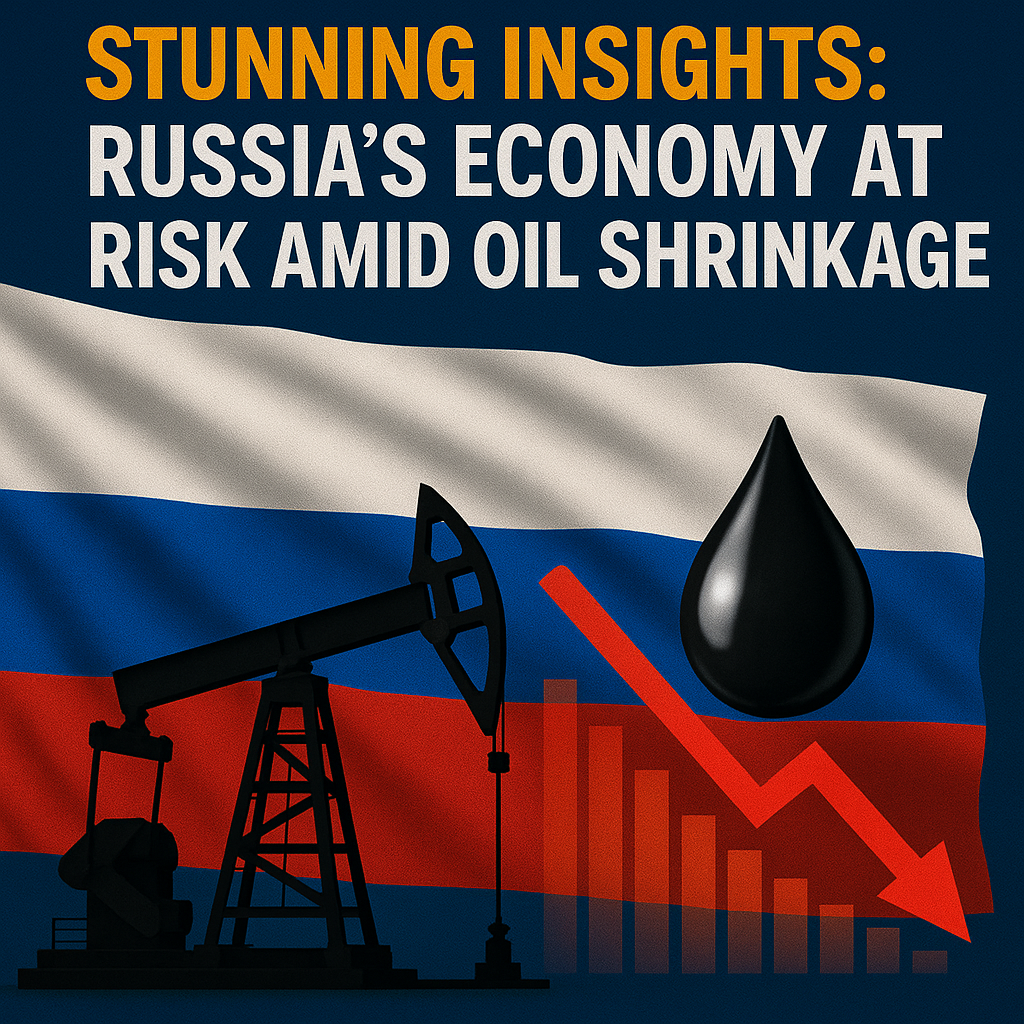Stunning Insights: Russia’s Economy at Risk Amid Oil Shrinkage
Stunning Insights: Russia’s Economy at Risk Amid Oil Shrinkage
Russia’s economy is facing a precarious balance as its oil revenues continue to shrink. This decline raises critical questions about the long-term sustainability of its economic model, heavily dependent on energy exports. Various analysts highlight that this situation not only puts pressure on state finances but also affects global energy markets and geopolitical dynamics.
The Current State of Russian Oil Exports

The oil industry has long been a cornerstone of Russia’s economic stability, contributing about 40% to federal budget revenues. However, recent reports indicate a significant downturn in oil exports. For instance, data from multiple news sources illustrate that while Russia has attempted to pivot towards non-Western markets like China and India, sales volumes have failed to compensate for the dramatic falloffs in income. According to Al Jazeera, Russian oil exports in September saw a drop of approximately 10%, a trend that raises concerns about the effectiveness of the Kremlin’s strategies to counter Western sanctions.
Moreover, the global energy landscape is continually evolving. As alternative energy sources gain traction within Western nations, Russia’s aging oil infrastructure has begun to show cracks, making it increasingly difficult to maintain production levels. RT emphasized that while Russian negotiators secure short-term deals with countries like India, these agreements come at discounted prices that do little to mitigate the impact of reduced income on the domestic front.
Government Response and Public Sentiment
In reaction to the dwindling oil revenues, the Russian government has initiated various measures aimed at bolstering the economy, including diversifying its export markets and encouraging fiscal reforms. However, these strategies seem to lack coherence and urgency, according to Sky News analyses. Public sentiment on the ground reflects a growing unease, as many citizens voice frustration over rising costs and stagnating wages. The general optimism that existed after the invasion of Ukraine has faded, replaced by a more pragmatic outlook that questions the sustainability of an economy so heavily reliant on fossil fuels.
Economists from various sources urge the Russian government to adopt more comprehensive reforms. They advocate for upgrading its industrial base and investing in alternative sectors to reduce dependency on oil. However, this recommendation comes laden with challenges, as the existing political framework may resist such transformative changes, fearing loss of control and influence.
Oil Markets and Global Implications
The consequences of Russia’s economic struggles extend beyond its borders, impacting global oil markets significantly. As Russia’s ability to supply energy diminishes, countries dependent on Russian oil are forced to seek alternatives, accelerating the transition to renewable energy sources. This shift aligns with the current trajectory of many Western countries aiming for carbon neutrality by 2050.
The potential for instability in the oil market could provoke further geopolitical tensions. Al Jazeera observes that the shrinking of Russian oil exports is layered with strategic implications, including the possibility of increased reliance on Middle Eastern suppliers. This pivot may not only alter existing energy partnerships but could also lead to realignments in international relations.
It is crucial to note that while the immediate effects of these shifts may create turbulence, they could also open doors for emerging markets to establish themselves in the global energy landscape. Countries in Africa and South America, for instance, might find new opportunities to fill the gap left by Russian oil, thus reshaping economic dynamics in those regions.
Conclusion: A Fragile Economic Future
In summation, the question of whether Russia’s economy is at risk due to oil revenue shrinkage is layered and complex. While current data points to increasing financial strain, the government’s response and the evolving global energy landscape suggest that definitive conclusions remain elusive. The lack of a clear consensus among observers underscores the volatility of the situation, emphasizing the importance of continuous monitoring and analysis.
Both domestic challenges and shifting international alliances foster an environment of uncertainty. As the situation develops, it is likely that both experts and citizens will keep a close watch on how Russia navigates this multifaceted crisis, weighing its options for a more sustainable economic future.




































